In the realm of Indian classical theatre, the play "Ravana Vadhh" emerges as a magnum opus that delves into the intricate layers of the timeless epic, the Ramayana. This theatrical masterpiece breathes life into the narrative of the virtuous Lord Rama's quest to rescue his abducted wife, Sita, from the formidable demon king, Ravana. Join us as we journey through the enchanting world of "Ravana Vadhh," a theatrical spectacle that captures the essence of valor, morality, and the eternal battle between good and evil.
Director - Pabitra Rabha
Above photograph also shows Dinesh Khanna, an accomplished Theatre Director.
Language - Assamese
....
Epic Inspiration:
At the heart of "Ravana Vadhh" lies the inspiration drawn from the Ramayana, one of the most revered and cherished epics in Indian mythology. The play unfolds the riveting saga of Lord Rama's exile, Sita's abduction, and the ensuing battle with the formidable demon king, Ravana. Through the lens of theatrical brilliance, the narrative is brought to life on the stage, inviting the audience to witness the epic unfold in all its grandeur.
Artistry in Performance:
....
The play is a testament to the artistry of Indian classical theatre. From intricate choreography to soul-stirring musical compositions, every element of "Ravana Vadhh" is meticulously crafted to transport the audience to the mythical world of Ayodhya and Lanka. The actors, adorned in resplendent costumes, embody the iconic characters, infusing the stage with an aura of divine energy.
Character Dynamics:
....
"Ravana Vadhh" doesn't merely retell the story; it explores the depth of characters, unraveling their motivations, dilemmas, and complexities. The virtuousness of Lord Rama, the resilience of Sita, the towering pride of Ravana, and the unwavering loyalty of Hanuman—all find expression through the nuanced performances, creating a multidimensional narrative that transcends the boundaries of time.
Visual Spectacle:
....
The play unfolds as a visual spectacle, with elaborate set designs that transport the audience to the ancient landscapes of Ayodhya and Lanka. From the opulence of Ravana's court to the serene forests where Lord Rama undertakes his exile, the stage becomes a canvas on which the epic drama is painted with vibrant hues and intricate details.
Musical Rhapsody:
....
Music, a soulful companion to the narrative, weaves its own rhapsody in "Ravana Vadhh." Traditional instruments, melodic ragas, and rhythmic beats create a sonic landscape that enhances the emotional resonance of the play. The audience is not merely spectators; they become participants in a symphony of storytelling.
Philosophical Undercurrents:
....
Beyond the surface narrative, "Ravana Vadhh" carries profound philosophical undercurrents. The play delves into the moral complexities surrounding duty, righteousness, and the choices that define one's destiny. It prompts the audience to reflect on the timeless lessons embedded in the Ramayana, making the theatrical experience not just entertaining but intellectually enriching.
Cultural Reverence:
....
As "Ravana Vadhh" takes center stage, it becomes a celebration of India's cultural heritage. The play, rooted in ancient traditions, serves as a bridge connecting contemporary audiences with the profound wisdom encapsulated in the Ramayana. It stands as a testament to the enduring legacy of Indian classical theatre and its ability to transcend temporal boundaries.
....
"Ravana Vadhh" is more than a theatrical performance; it is a journey into the heart of an epic that has resonated through the corridors of time. Through its artistic brilliance, the play invites audiences to immerse themselves in the moral quandaries, the valorous exploits, and the timeless wisdom embedded in the narrative of the Ramayana. As the curtains fall, "Ravana Vadhh" leaves an indelible impression—a theatrical odyssey that lingers in the collective consciousness, echoing the eternal truths woven into the fabric of Indian mythology.
....
The most impressive thing about this play for me was that majority of the actors in this place were not from Assam but you can't figure that out from their dialog delivery in the play. This play was in Assamese and can't express in words how impressive it was.
....

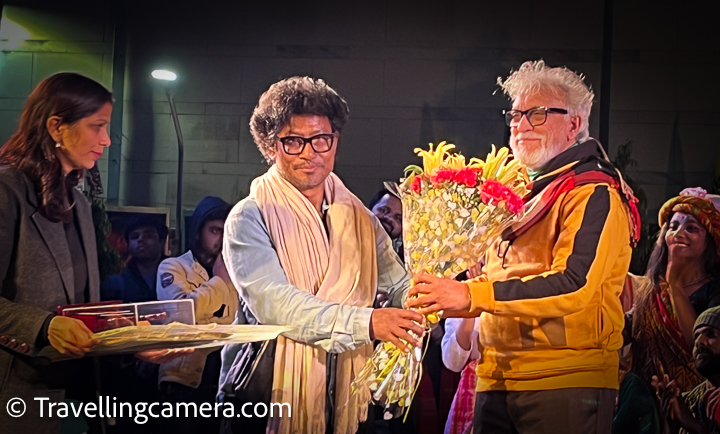
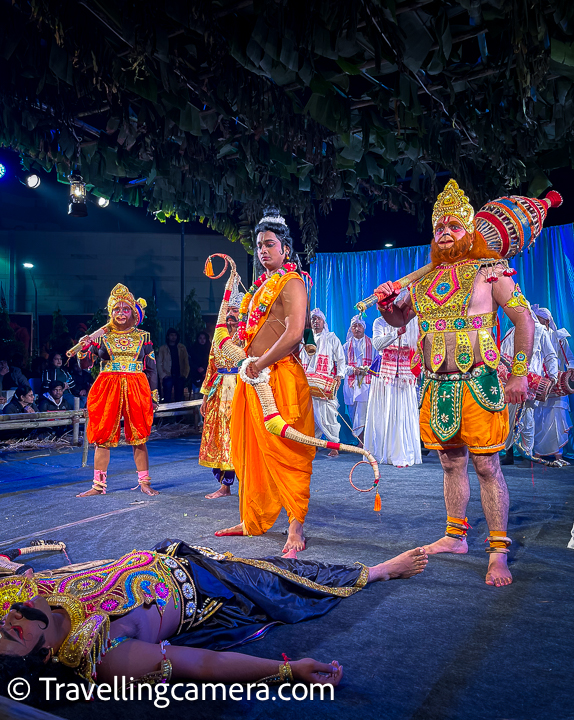
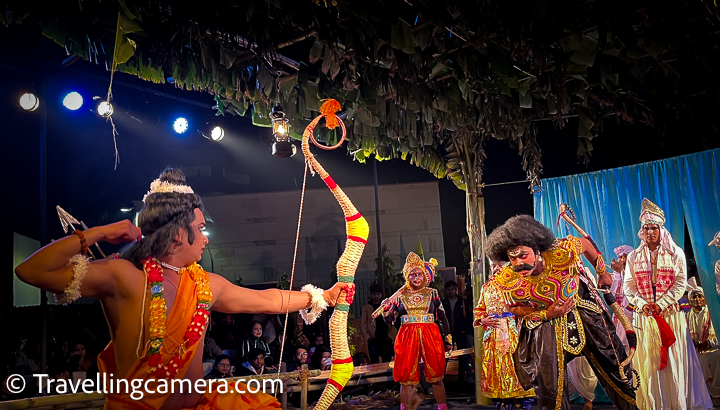
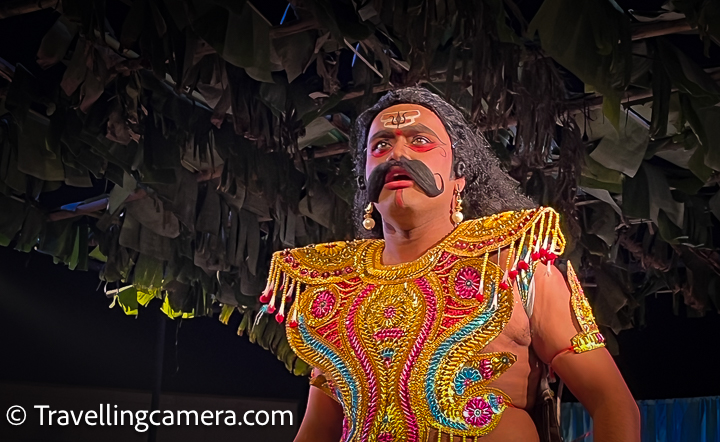
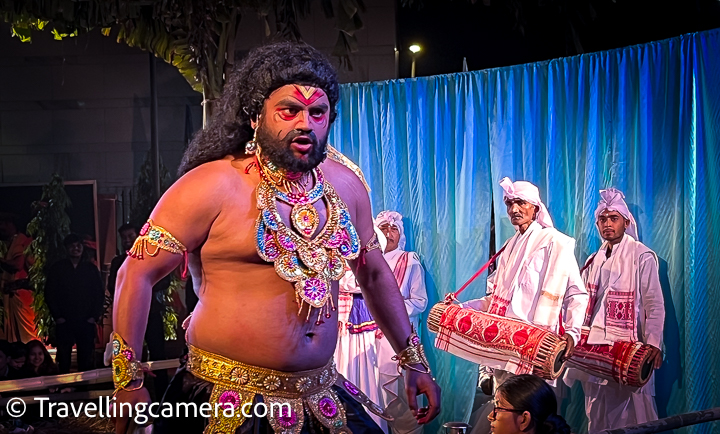

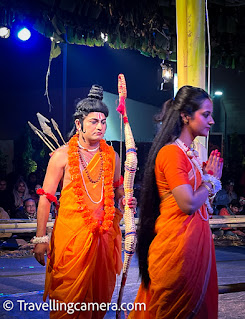



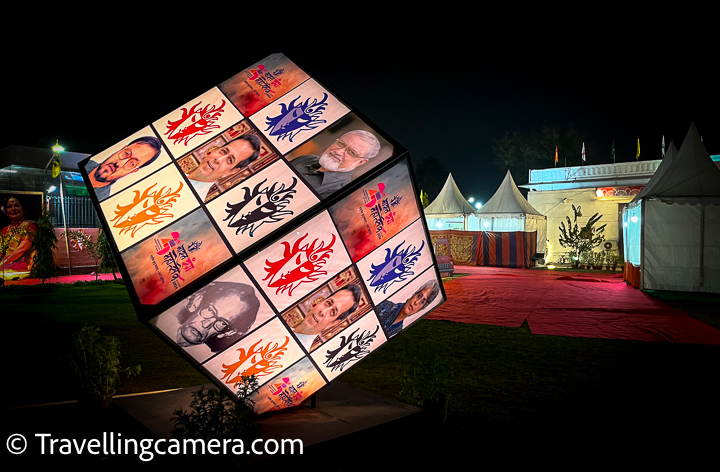

.jpg)
Comments